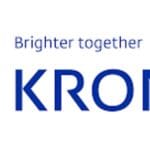KRONOS is a provider of titanium dioxide pigments. These pigments are used in a wide range of applications for whitening and brightening.
KRONOS Worldwide, headquartered in Dallas, is a leading global producer and marketer of titanium dioxide pigments used in a wide range of applications. The company has thousands of 3,000 customers in over 100 countries. The titanium dioxide market has become far more competitive, and the industry is becoming commoditized.
While KRONOS (NYSE: KRO) was incorporated in 1989, the company’s roots are over 100 years old. Over the years, individual locations—the company has several manufacturing locations in Europe and North America—have behaved increasingly autonomously. Autonomy led to a complex supply chain with shipments that traveled too many miles and required too many touches across the nodes. Their IT infrastructure was also highly heterogeneous and provided no standard business processes or real-time reporting. Meanwhile, customers’ procurement operations were seeing a new generation of talent come of age who were pushing for better value-added services and shipment visibility.
KRONOS Worldwide implemented SAP’s ERP to gain more central control and streamline operations. Memsud Musabasic, a director of global distribution, joined KRONOS in 2019 to support the objectives and leverage SAP to drive value across all supply chain layers including physical distribution network, planning and execution layers. Simplification and standardization were key to the strategy. Mr. Musabasic made the point that you could “forget about driving any kind of standard way of doing things without trying to simplify things first.” In logistics, simplification was supported by reducing the number of physical distribution nodes and improving the execution layer by adding a transportation management system and digitization in the form of better electronic connectivity to all partners across warehousing and transportation.
Unfortunately, SAP was implemented in a way that preserved the old fragmented operating process. Users continued to work as they always had and then input data into SAP. “SAP was acting as a recording tool,” Mr. Musabasic said. “We would never get value out of SAP that way! The system should drive the work.” At its core, this was the wrong setup.
Often, when an ERP solution is implemented, the hard dollar savings do not come from finance, human resources, or customer relationship management solutions; they are generated by new efficiencies enabled in supply chain management. KRONOS examined whether it made sense to implement SAP’s TMS or work with a provider of managed transportation services.
Ultimately, they decided to work with Uber Freight. KRONOS felt Uber Freight had a best-of-breed TMS that Uber’s planners could use to plan and execute shipments on KRONOS’s behalf. Uber was also making annual investments of about $120 million to continue to improve their TMS. And it was felt that the change management issues associated with getting the KRONOS site-level personnel to effectively use SAP’s TMS were just too difficult.
The new simplified SAP set-up and Uber Freight’s managed trans services have driven significant benefits for KRONOS. In the first year after Uber negotiated new rates, KRONOS saved close to 20% on transportation. In the following years, savings ranged from 4-5%. These savings are driven by the Uber planning team’s professionalism and willingness to chase savings of as little as $20 per shipment, Uber’s ability to quickly put freight out to bid when rates or service levels change, and the simplified network and TMS optimization leading to more full truckload shipments.
There have also been customer service improvements. Prior to Uber Freight, KRONOS could not even measure customer service. Uber Freight procurement events now require that the selected carriers be able to provide visibility to shipment status. Carriers now must have MacroPoint or FourKites style visibility. And because transportation can never be perfect, when incidents do occur, KRONOS’s customers can be notified that a shipment will be late.
Visibility also promotes better revenue recognition as revenue is recognized when a container is loaded on a vessel. Prior to this, “chasing this down could take us days,” the director said. Finally, customers are increasingly requesting transportation emission data. Visibility also promotes this.
KRONOS also improved their warehouse operations based on managed trans fully connected to the ERP system together with a complete interface between the warehouse provider and ERP. This kind of digitization across the execution layer was key to streamlining operations and driving value from SAP.
Outsourcing to best of breed partners and allowing KRONOS to focus on its core competencies has driven significant value. Outsourcing required simplification and a clean core first and foremost. Mr. Musabasic’s final piece of advice is that a vested relationship is critical for a relationship to be as successful as what KRONOS and Uber Freight have achieved. A vested relationship is one in which benefits are shared, the outsourced service provider is trusted to make decisions, and there is full transparency to both what is working and what is not on the part of both partners.
The post KRONOS Worldwide Improves Service and Reduces Costs with Managed Trans appeared first on Logistics Viewpoints.
